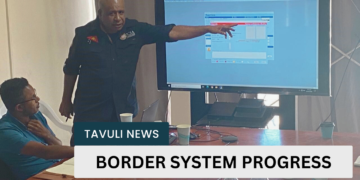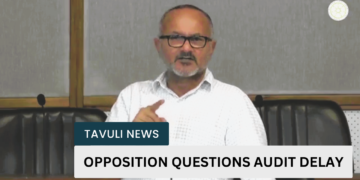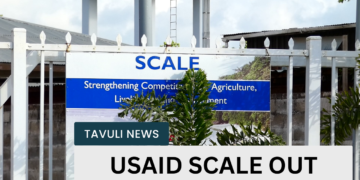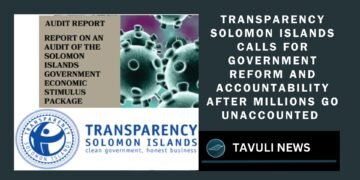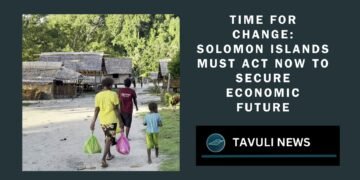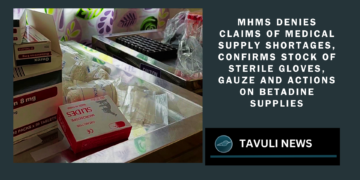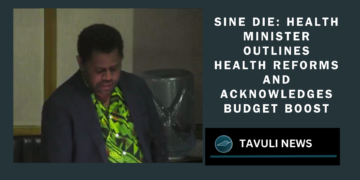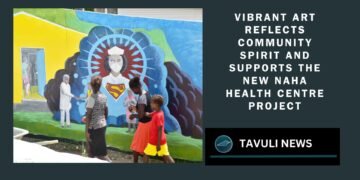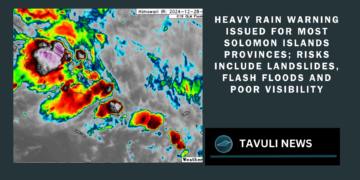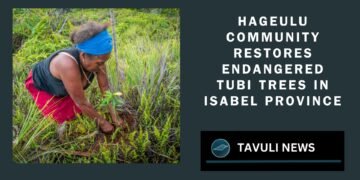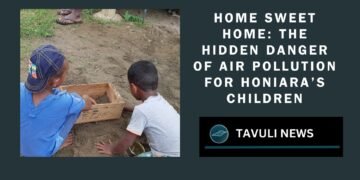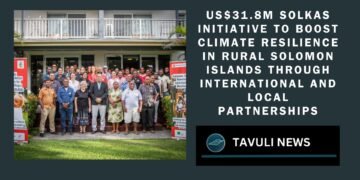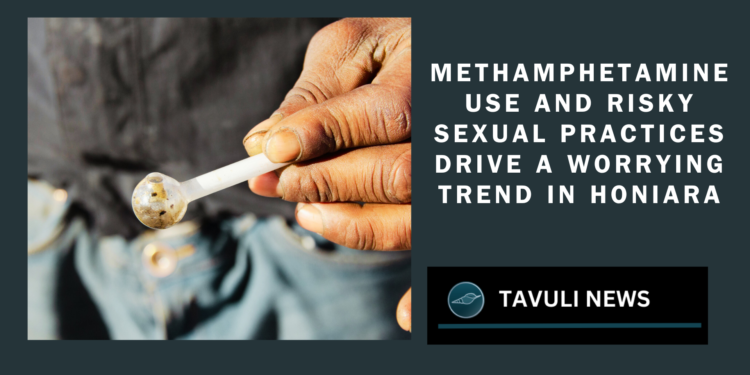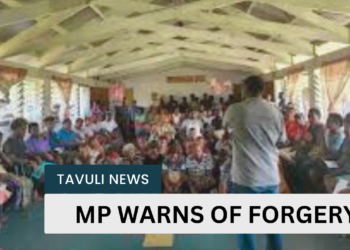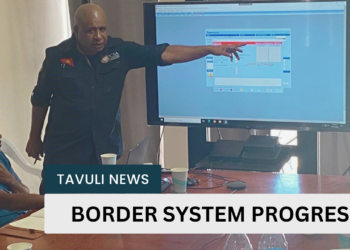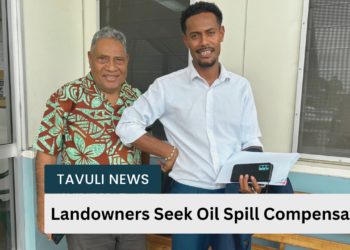Growing ICE abuse and risky sexual behavior among MSM threaten to worsen the HIV epidemic in the Solomon Islands.
HIV cases are on the rise in the Solomon Islands, with 2024 marking an all-time high in the number of new infections. The Ministry of Health and Medical Services (MHMS) has raised alarms over this troubling trend, particularly with the emergence of ICE (methamphetamine) use in Honiara and its association with an increased risk of HIV transmission.
Dr. Jackson Rakei, Director of the HIV Program in the Solomon Islands, confirmed during World Aids Day Official Program that from September 2023 to the present, the country has reported seven new HIV cases, six of which involve men engaged in same-sex sexual activity. This marks a shift in the HIV transmission pattern, as anal sex—which carries a higher risk of HIV transmission compared to vaginal sex—is becoming more common among men who have sex with men (MSM).
“What we are seeing now is concerning,” said Dr. Rakei. “In the past, HIV cases were relatively low, thanks to awareness campaigns and donor support. But as this support has decreased and HIV awareness programs have slowed, we are now seeing a sharp rise in cases. If we don’t act now, we could follow in the footsteps of countries like Fiji, where ICE use has significantly contributed to the spread of HIV.”
Dr. Rakei further explained that among males, HIV transmission is primarily linked to MSM, while for females, infections are commonly acquired through unsafe sexual activity with expatriates. He urged women to be cautious and mindful of engaging in sexual relationships with foreign expatriates, emphasizing the importance of safe sex practices to reduce the risk of infection.
Fiji’s Experience: A Warning for the Solomon Islands
The situation in Fiji provides a crucial lesson for the Solomon Islands. In Fiji, ICE use has fueled a surge in HIV infections, particularly among high-risk groups such as people who inject drugs and men who have sex with men. A phenomenon known as the “Bluetooth” crisis emerged in Fiji, where individuals would inject each other’s blood, contributing to a dangerous increase in HIV transmission.
Health experts have warned that the Solomon Islands could face a similar situation if action is not taken swiftly. ICE use in Honiara is rising, and experts fear it will mirror Fiji’s HIV crisis. The sharing of needles and engaging in risky sexual behaviors, including unprotected sex, is driving the transmission of HIV in both countries.
Dr. Rakei drew comparisons between the two nations: “Fiji’s experience has shown us the dangers of unaddressed ICE use and its links to HIV transmission. If we do not take action, the Solomon Islands risks facing the same challenges. The rise in ICE use in Honiara is alarming, and we must act quickly to prevent the HIV epidemic from worsening.”
The Link Between ICE and HIV Transmission
The rise in ICE use in the Solomon Islands, particularly in the capital Honiara, is concerning health officials, as it directly contributes to higher-risk behaviors such as needle sharing and unprotected sex. Both of these factors greatly increase the risk of HIV transmission.
“ICE use is a significant risk factor for the spread of HIV,” said Dr. Rakei. “People who inject drugs often share needles, which is one of the most effective ways for HIV to spread. Additionally, ICE can lead to risky sexual behaviors, including multiple partners and unprotected sex, both of which contribute to the spread of HIV.”
As in Fiji, where ICE use has contributed to the spread of HIV among certain populations, the Solomon Islands is witnessing similar trends. Dr. Rakei stressed that early detection and treatment of HIV can prevent the virus from spreading, but this can only happen if individuals are tested and seek medical care in time.
Government’s Response and Measures to Combat the Rise in HIV
The Solomon Islands government, through the Ministry of Health and Medical Services (MHMS), is stepping up efforts to combat the rising HIV cases. Dr. Nemia Bainivalu, Deputy Secretary Health Improvement at the MHMS, stated that the ministry is committed to supporting the HIV/STI program and ensuring the sustainability of these efforts. A key focus is on scaling up HIV services, especially in provinces, where access to testing and treatment is often limited.
“We must also continue to fight stigma and discrimination, which prevent people from coming forward to get tested and receive treatment”, said Dr. Nemia.
Addressing HIV Among Men Who Have Sex with Men (MSM)
The Solomon Islands is now seeing a shift in the demographic of those contracting HIV, with men who have sex with men (MSM) emerging as a higher-risk group. This is a concerning development for health authorities, as MSM often face barriers to accessing HIV prevention and treatment services due to stigma and discrimination.
Dr. Rakei emphasized the importance of targeted awareness campaigns for MSM, who are now the fastest-growing group for new HIV infections in the Solomon Islands. “We need to ensure that MSM are aware of the risks and know how to protect themselves,” he said. “Condom use and regular HIV testing are critical for this group, especially in light of the rising ICE use.”
Encouraging Testing and Early Detection
Health officials are urging people, especially those engaging in high-risk behaviors such as multiple sexual partners or drug use, to get tested for HIV. Early detection is crucial, as it allows for timely treatment, which can manage the virus and reduce the likelihood of transmission.
“We cannot underestimate the importance of knowing your HIV status,” said Dr. Rakei. “The earlier HIV is detected, the better the outcome. Testing is free and confidential, and we encourage everyone, particularly those at high risk, to get tested.”
The rise in HIV cases among young people, particularly those aged 19-25, also emphasised the need for greater awareness and education on HIV prevention. Many new cases in the Solomon Islands are among individuals who engage in high-risk sexual behaviors or use drugs like ICE.
The Path Forward: More Collaboration Needed
Addressing the HIV crisis in the Solomon Islands will require a coordinated, multi-sectoral approach. Health authorities, communities, and local organizations must work together to ensure that HIV prevention, testing, and treatment services are available to everyone, especially in high-risk groups. This includes addressing the growing issue of ICE use and its impact on HIV transmission.
“We need more collaboration and support in this space,” Dr. Rakei concluded. “The situation is serious, but we can turn it around if we all work together. The lessons from Fiji should serve as a wake-up call for the Solomon Islands.”
*The spotlight on HIV/AIDS for this World AIDS Day is supported by the Asia Foundation through its Power Up Project, in collaboration with the Pacific Islands News Association (PINA), as we commemorate the activities marking the 16 Days of Activism


